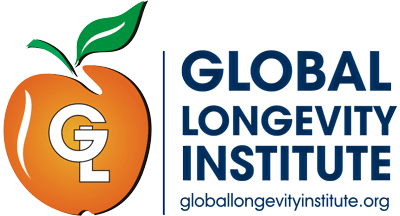With anti-aging medical checkup, the GLI medical specialists will address potential threats to your health and check your aging progress, to provide you with a one-on-one custom health care program to keep you healthy.
GLI anti-aging and medical checkup programme is aimed at revitalising the entire body and suspension the ageing process.
Anti-aging and Medical Checkup includes:

Preliminary consultation, Result consultation

Physical Measurement and Obesity Index, blood pressure, EKG

Evaluation of functional regulation of the autonomic nervous system by measuring heart rate variability

Complete Blood Cell Count and urine test. Isolated thrombocytosis - early marker of colon and lung cancer.

Markers of Liver Cell Death
The liver is the largest internal organ in the human body and its proper function is indispensable for many critical metabolic functions, including the regulation of lipid and sugar metabolism, the production of important proteins, including those involved in blood clotting, and purification of blood. There are over 100 described diseases of the liver, and because of its many functions, these can be highly debilitating and life-threatening unless effectively treated.
Liver diseases can result from injury to the liver caused by a variety of insults, including hepatitis C virus (HCV), hepatitis B virus (HBV), obesity, chronic excessive alcohol use or autoimmune diseases. Many people with active liver disease remain undiagnosed largely because liver disease patients are often asymptomatic for many years. According to the European Association for the Study of the Liver (EASL), 29 million Europeans have chronic liver disease, and liver disease represents approximately two percent of deaths annually. In studies has been shown that in obese people hepatic tissue was characterized by signs of accelerated aging.
ALT is an enzyme that is produced in liver cells and is naturally found in the blood of healthy individuals. In liver disease, liver cells are damaged and as a consequence, ALT is released into the blood, increasing ALT levels above the normal range. Physicians routinely test blood levels of ALT to monitor the health of a patient's liver.
ALT level is a clinically important biochemical marker of the severity of liver inflammation and ongoing liver disease. Elevated levels of ALT represent general markers of liver cell death and inflammation without regard to any specific mechanism. However, in later stage cirrhosis patients, ALT levels have been shown to not be elevated above the normal range.
Aspartate aminotransferase (AST) is a second enzyme found in the blood that is produced in the liver and routinely measured by physicians along with ALT. As with ALT, AST is often elevated in liver disease and, like ALT, is considered an overall marker of liver inflammation.
Another important marker of liver cell death is a protein fragment called caspase-cleaved Cytokeratin 18 (cCK18). During apoptosis, a key structural protein within the cell called Cytokeratin 18, or CK18, is specifically cleaved by caspases, which results in the release of cCK18 into the blood stream. cCK18 is easily detected in the blood with a commercially-available test and is a mechanism-specific biomarker of apoptosis and caspase activity.
Unlike ALT, cCK18 is elevated in patients with advanced liver disease and cirrhosis. Importantly, cCK18 is also present in healthy subjects and multiple studies have demonstrated an approximate basal level in healthy subjects. Numerous independent clinical trials and published studies have demonstrated the utility of cCK18 for detecting and gauging the severity of ongoing liver disease across a variety of disease etiologies. These studies have demonstrated correlations between disease and cCK18 levels in patients with ACLF, LC, portal hypertension (PH), HCV, NASH and various other liver disease indications. For example, it has been shown that in HCV patients, the severity of liver disease was correlated with cCK18 levels and apoptosis, such that the more severe the disease, the higher the serum level of cCK18.
In ACLF patients, studies have shown that blood levels of cCK18 were higher in non-surviving patients than in patients that survived. In LC patients, studies have shown that cCK18 levels are elevated and correlate with liver inflammation and cholestasis. cCK18 is a valid and important biomarker of excessive apoptosis in liver disease.
Leptin ("the hormone of energy expenditure") is a hormone predominantly made by adipose cells that helps to regulate energy balance by inhibiting hunger.
Early signs of cardiovascular disease include high blood pressure, rapid heart rate, and a high level of markers of inflammation in the blood, including the concentration of C-reactive protein (CRP), as well as homocysteine and fibrinogen.
Total Testosterone, Free Testosterone, FSH, LH, Estradiol, Progesteron, Prolactin, Cortizol. Thyroid: TSH, Free T4, Free T3, TG, TPO.
Evaluation of imbalance for homocystein, growth hormones, sex hormones, adrenal hormones, pancreatic hormones and thyroid hormone tests. Growth hormones and DHEA-S hormone levels linked to Anti-Aging, depression, stress and fatigue.
Marker of DNA damage and oxidative stress of 8-oxo-dGsn. 8-oxo-2'-deoxyguanosine (8-oxo-dG) is an oxidized derivative of deoxyguanosine. 8-oxo-dG is the predominant form of DNA damage from oxidative stress.
With age, due to oxidative stress in DNA (a molecule where the genetic code of an organism is encoded), errors and mutations arise. The faster the rate of accumulation of DNA damage and mutations, the faster the aging of the body.
Your immune system protects you from germs, viruses, and chronic illnesses. Enhance your immune system by testing your NK (Natural Killer) cell activity level. NK cells are “natural killer” cells that respond to and destroy virus-infected cells and tumor cells. Aging is another fundamental factor in the development of cancer. The incidence of cancer increases dramatically with age. This is due to the accumulation of random mutations and epimutations, an age-related decrease in immunity and the effectiveness of DNA repair processes.
- Evaluation of accumulated heavy metals in the body and nutrient mineral imbalances by hair tissue analysis.
- Evaluation of the human body energy metabolism, detoxification function and proliferation of pathogens (bacteria, fungi).
Folate and vitamin B12 are required both in the methylation of homocysteine to methionine and in the synthesis of S-adenosylmethionine. S-adenosylmethionine is involved in numerous methylation reactions involving proteins, phospholipids, DNA, and neurotransmitter metabolism. Both folate and vitamin B12 deficiency may cause similar neurologic and psychiatric disturbances including depression, dementia, and a demyelinating myelopathy.
A current theory proposes that a defect in methylation processes is central to the biochemical basis of the neuropsychiatry of these vitamin deficiencies. Folate deficiency may specifically affect central monoamine metabolism and aggravate depressive disorders. In addition, the neurotoxic effects of homocysteine may also play a role in the neurologic and psychiatric disturbances that are associated with folate and vitamin B12 deficiency.
Bone health: 25-OH vitamin D, Calcium, Phosphate, Albumin.
Cardiovascular and inflammatory risk: Lipids and inflammation. Apolipoprotrein A 1, Apolipoproteine B, Ratio Apo B/ Apo A 1. Lipoprotein (А), Cholesterol total, Cholesterol HDL, Cholesterol LOL, Triglycerides, Ultra-sensitive CRP.
Uric acid: Thickness of the intima-media complex of the common carotid artery.
Diabetic_risk. Insulino-resistance: Fasting glucose, Fasting insulin, HOMA index.
The glomerular filtration rate is a marker of kidney aging, CVD mortality and prostate cancer risk.
Gastroscopy is the diagnosis of stomach cancer at an early stage
Colonoscopy is the diagnosis of colon cancer, as well as the analysis of feces for latent blood is an aybob test (1 every 3 years after 50 years).
Multispiral computed tomography (MSCT) of the abdominal cavity organs (necessarily with contrast !!!) for the diagnosis of pancreatic cancer and liver (1 every 3 years after 40 years).
IGF1 (Somatomedin C) is a marker of the rate of aging and the risk of cancer, dementia and diabetes (once a year, starting at age 21).
yNutrition, metabolism, sports Iron metabolism: Iron, Ferritin, Transferrin, Soluble receptor TFE.
We offer Genetic Testing in GLI
Genetic testing provides valuable information about our health that allows us to take the correct measures to improve our health and vitality, as well as prevent potential diseases. By understanding what lifestyle habits we should adopt and what nutrition plan suits us best, we can boost our health and prevent premature aging.
What are the benefits of genetic testing?

Determine what foods we are intolerant to

The recommended ideal diet type for us

The fitness plan that suits us best

Prevention for possible diseases we could develop due to our genetic make-up
What if you could find out what types of workouts are the most beneficial and effective for your body? What foods you’re intolerant to and which ones you should be including in your diet? Thanks to genetic testing, it’s possible. The future of health and fitness is hyper-personalisation through DNA tests.
Through genetic testing, we can analyse the genetic make-up of each individual and gain a better understanding of our wellness needs. Instead of settling for a generic plan that might work for one person, but not for each individual, you can have access to a fitness plan that is tailored to your DNA, improving the benefits, efficiency and endurance of each individual.
Genetic testing doesn’t only provide valuable information about what the most appropriate workout plan is for each person, but also nutritional advice based on your DNA results. As a result, you’re able to create a personalised nutrition and fitness plan adapted to your needs and provide the best results for your health and wellbeing.
If you want to create a hyper-personalised health and fitness plan, than you should consider getting a DNA test to determine your body’s needs.
Subscribe Our Newsletter
Sign up today for free and be the first to get notified of news.

















